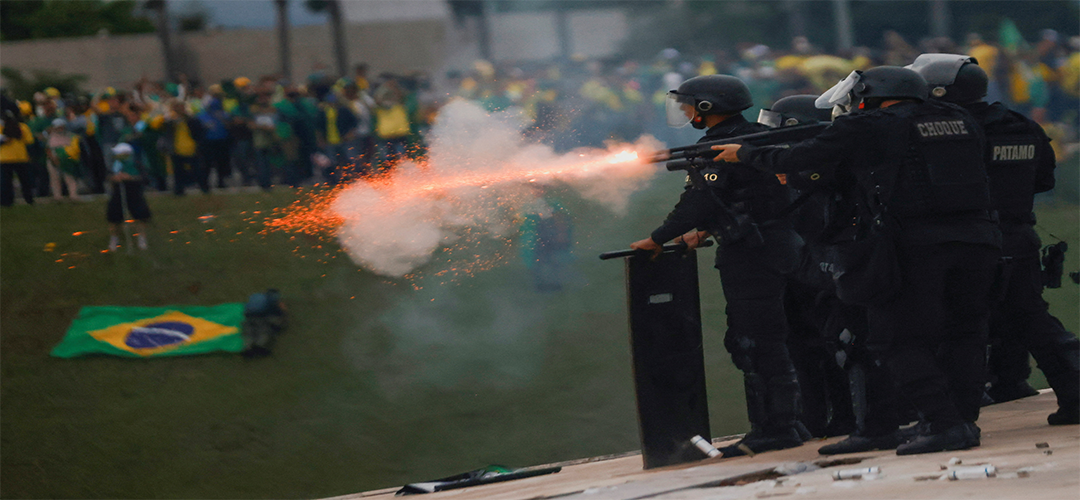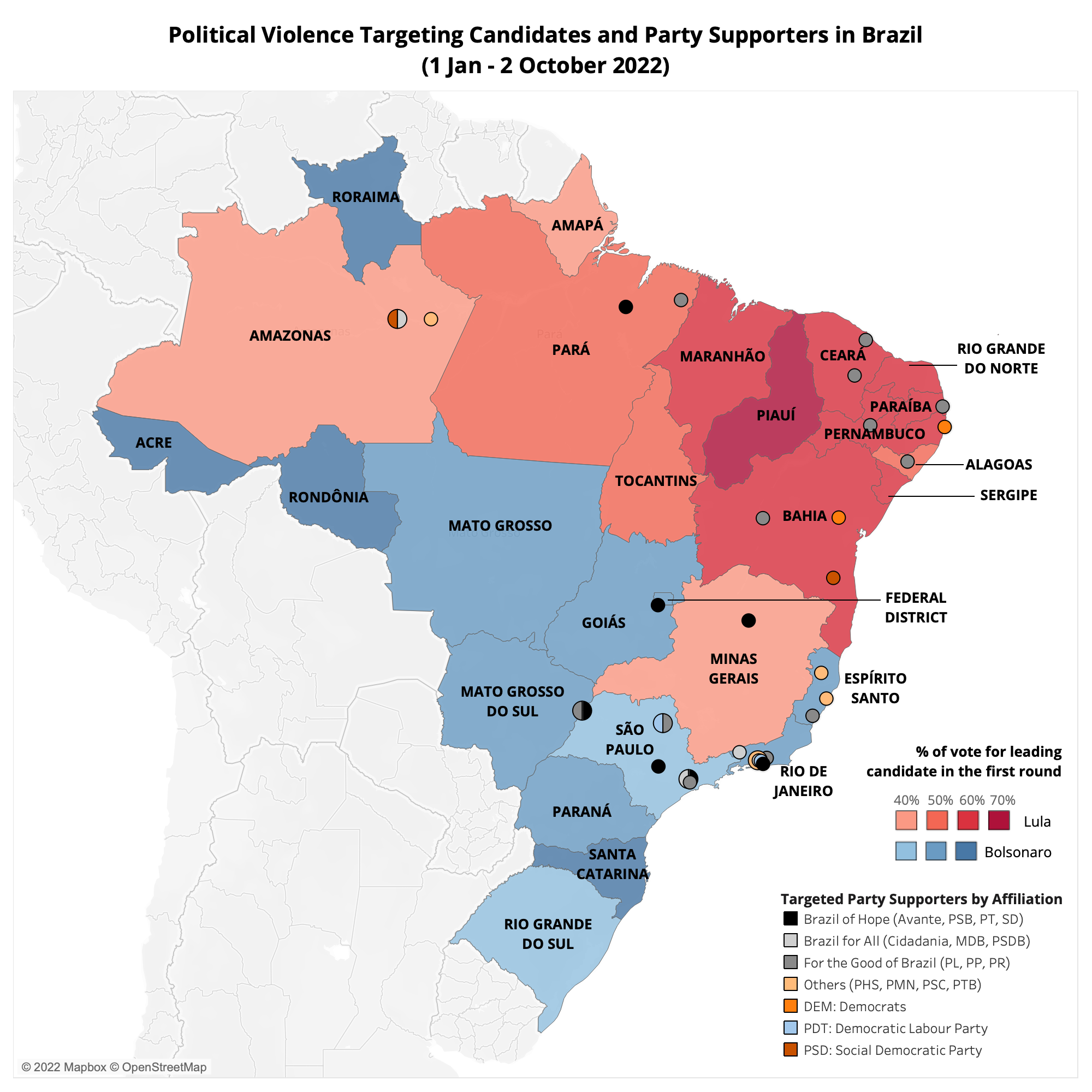From Trumpism to Bolsonarism
January 14, 2023 | Expert Insights

Democracies are being rocked across the globe as 'mobocracy' threatens to evict democratically elected leaders. We saw this phenomenon in the Capitol Hill of Washington, then in Colombo, where a rampaging mob forced the President to flee. Now, it is on display in Brasilia, where rampaging mobs have turned streets into war zones.
On 8th January 2023, thousands of supporters of former Brazilian President Jair Bolsonaro stormed various key government buildings to reinstate Bolsonaro into power. Protestors targeted the Congress building, the Supreme Court, and the Presidential Palace. In certain instances, security forces were even allowing rioters to pass by them without restraint. The attack on the country's highest legislative, executive, and judiciary buildings underscored the support and capabilities of pro-Bolsonaro groups. The military police were deployed in Rio De Janeiro and Brasilia to break the demonstrations.
Post the devastating protests, the Liberal Party distanced itself from pro-Bolsonaro groups and condemned the attacks. The state detained nearly 1,500 rioters involved in the destruction and vandalism of public property. President Luiz Inácio Lula da Silva called for an investigation into the attack and promised punishment for all who instigated the protests. The governor of Brasilia was suspended from duty, and two senior security officials were arrested for their negligence. The military cleared pro-Bolsonaro groups who had camped outside the army headquarters for over two months, calling on the Army to overthrow the constitutionally elected President.

Background
The 2022 Presidential elections were the most contentious in Brazil, with supporters of both candidates embroiled in fights throughout the country months ahead of the elections. After Lula won the elections in October, in true Trumpian fashion, Bolsonaro claimed that the elections were rigged and that he had won the elections. The far-right leader used the support of the Liberal Party to spread accusations against the newly formed government. Radical ideas like coordinating a coup to overthrow the government were circulated amongst pro-Bolsonaro groups. Bolsonaro supporters even camped outside the Army headquarters in Brasilia, urging the military to remove Lulu from power. Flare-ups occurred throughout the country between Lula and Bolsonaro supporters. However, they were localised events resulting in minor conflicts.
Right before the recent protests, Bolsonaro was forced to leave the country due to multiple investigations against him. He is accused of corruption and illegal land acquisition during his time as President. When the protests were underway, Bolsonaro was far away from the chaos in Florida, getting medical treatment. Other members of his family were also found leaving the country to settle in parts of Europe ahead of the protests.
Analysis
It is clear that Bolsonaro and his supporters took a leaf from President Trump's playbook to win back power after losing it in an election. The only saving grace is that pro-Bolsonaro groups did not storm government buildings with the intention of harming lawmakers. On the contrary, they waited for the buildings to be clear of any high-value individuals before entering them. The vandalism and takeover of government buildings were a symbol of power and resistance for the protestors.
The impact of the protests also signifies a major lapse in security measures in the capital city. The preparedness of law enforcement agencies was poor despite multiple calls for mass demonstrations weeks ahead. Moreover, the presence of Bolsonaro loyalists within the police force allowed protestors to inflict more damage and chaos. Minimal opposition from the police and slow mobilisation of the armed forces encouraged protestors to enter and vandalise more government buildings than they had initially intended.
Though it might be easy for the government to apprehend all the people involved in the protests and punish them, it will be hard to eradicate the rise of Bolsanarism in the country. To prevent similar events from occurring, the government will have to strengthen the democratic values and institutions weakened by the previous government.
Despite their many flaws, South Asian countries like India have strong state institutions that prevent or isolate any anti-government movements. Brazil could follow a similar approach in the future to proactively deter radical movements in the country.
Assessment
- Like the fate of Trump after the Capitol Hill riots, Bolsonaro will likely face additional charges and lawsuits against him. With pressure mounting on the U.S. to revoke Bolsonaro’s visa, the far-right leader could be back in Brazil soon.
- The political environment in Latin America could change with the recent protests in Brazil. Peru, for example, has an identical crisis where ousted President Pedro Castillo is holding nationwide protests to conduct re-elections.








Comments